Archiv článků
Prohlédněte si všechny články a objevte více zajímavých témat!

Evropské čtvrtky ve Skauťáku
"U Charkova se umírá i za Prahu."
Přijď poslední čtvrtek v měsíci do našeho skautského sousedství a přidej se do otevřené diskuze, která bude následovat po tom, co Štěpán Černý odprezentuje tento hot take. Štěpán Černý je generální ředitel evropské sekce na Úřadu vlády, který v červnu odjíždí jako velvyslanec v COREPER I do Bruselu.
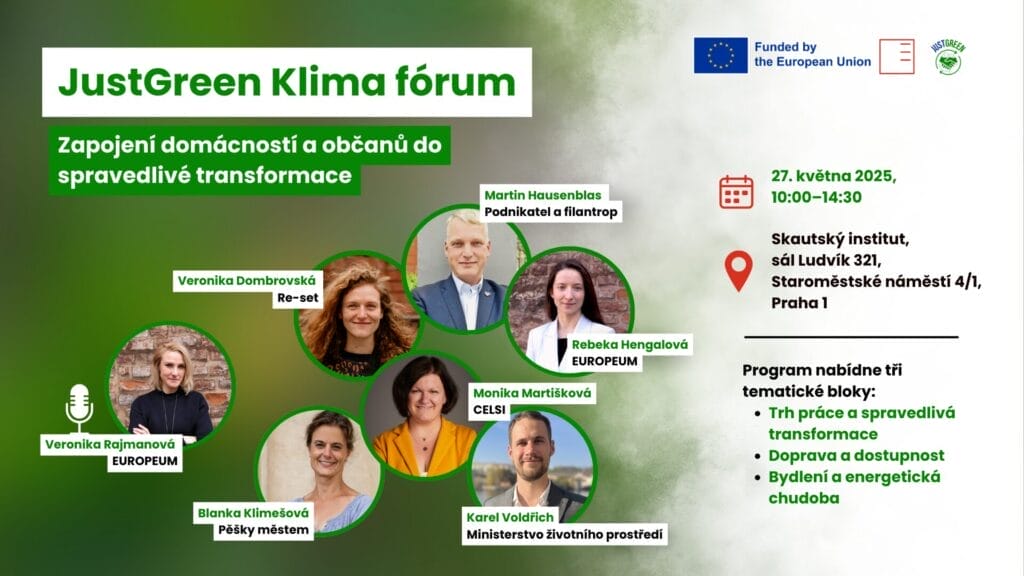
JustGreen Klima fórum | Zapojení domácností a občanů do spravedlivé transformace
Zveme vás na JustGreen Klima fórum, které se uskuteční 27. května 2025 v pražském Skautském institutu. Přijďte diskutovat o tom, jak mohou domácnosti a občané přispět ke spravedlivé klimatické transformaci. Čekají vás tři tematické bloky zaměřené na trh práce, dopravu a bydlení – včetně energetické chudoby. Fórum nabídne prostor pro sdílení názorů, zkušeností i konkrétních podnětů, jak společně tvořit udržitelnější budoucnost. Přidejte se k otevřenému dialogu s odborníky i dalšími účastníky a zjistěte, jaké kroky můžeme podniknout společně!

Český rozhlas Plus | Budoucnost bezcelního dovozu z Ukrajiny je nejistá. Ministři EU jednají v Bruselu
Před 2 lety Evropská unie dočasně zrušila cla na dovoz ukrajinských zemědělských produktů, aby podpořila zemi napadenou Ruskem. Bezcelní režim má však vypršet už za necelé dva týdny a jeho budoucnost je nejistá. Ministři zemědělství členských států o celé věci dnes jednají v Bruselu.
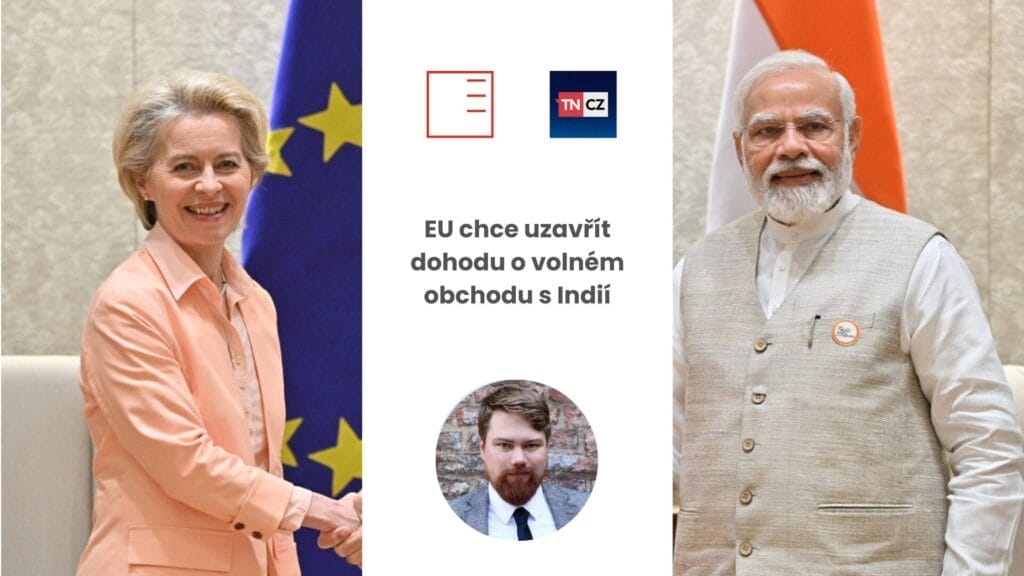
TN.cz | EU chce uzavřít dohodu o volném obchodu s Indií
Evropská unie by mohla uzavřít jednu z největších obchodních dohod na světě – a to s Indií. Kvůli možné obchodní válce a zhoršeným vztahům se Spojenými státy se totiž Evropská unie snaží rozšířit své působení i na jiné světové trhy. Poprvé se o této dohodě začalo mluvit už v roce 2008. Téma rozebral Martin Vokálek, výkonný ředitel Institutu EUROPEUM.
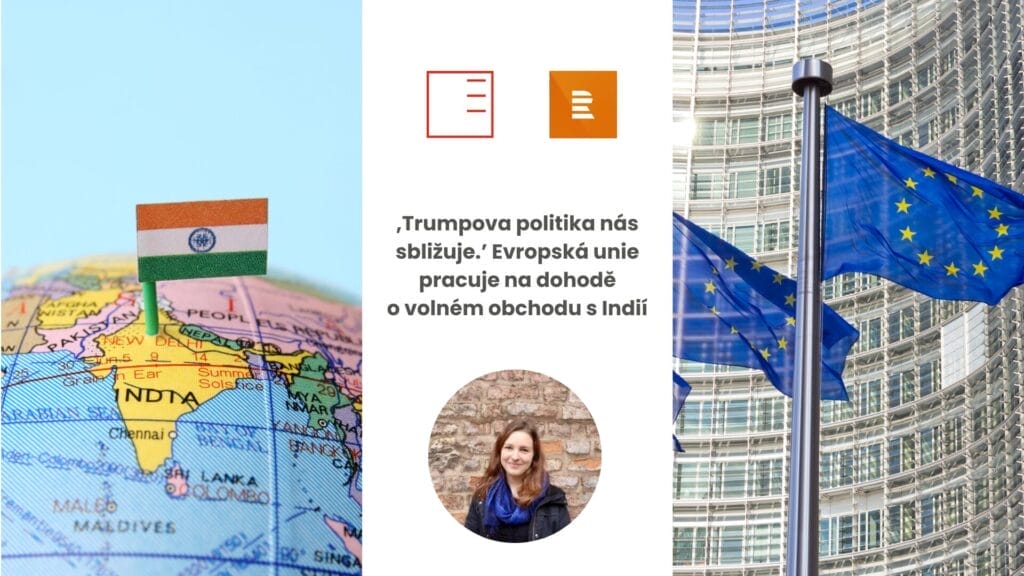
iROZHLAS | ,Trumpova politika nás sbližuje.’ Evropská unie pracuje na dohodě o volném obchodu s Indií
Evropská unie by mohla uzavřít jednu z největších obchodních dohod na světě. Alespoň tak hovoří předsedkyně Evropské komise Ursula von der Leyen o dohodě o volném obchodu s Indií, která by po letech vyjednávání měla být letos úspěšně dotažena. Pro iRozhlas dohodu okomentovala analytička Institutu EUROPEUM Zuzana Krulichová.
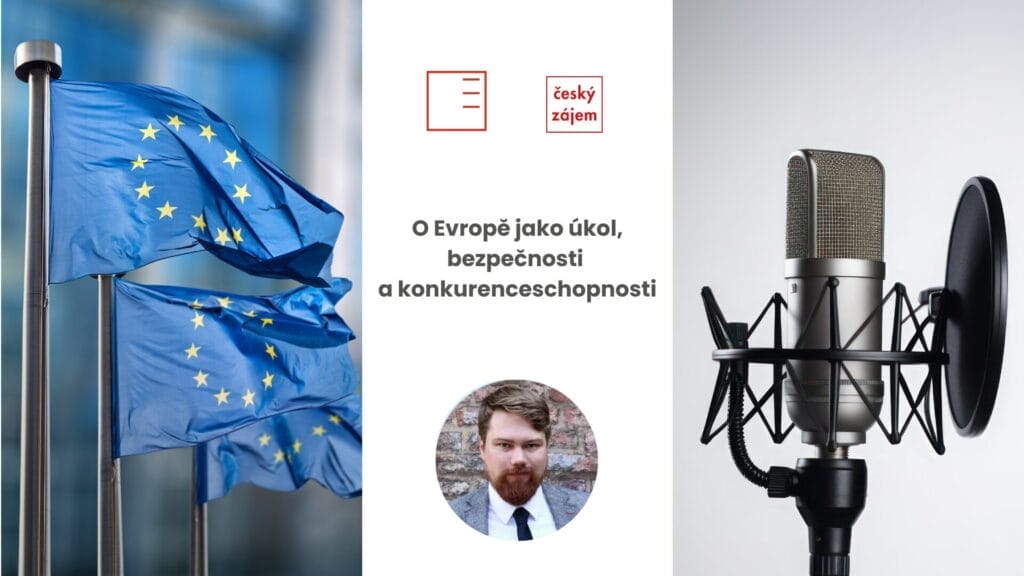
Český zájem | O Evropě jako úkol, bezpečnosti a konkurenceschopnosti
„V České republice a obecně v Evropě nám chybí jisté umění foresightu, my umíme předpovídat příští 2-3 roky, ale neumíme hloubkově předpovídat různé scénáře a být na ně připraveni.” Martin Vokálek, výkonný ředitel Institutu EUROPEUM, byl hostem v podcastu Český zájem s Janem Lipavským.
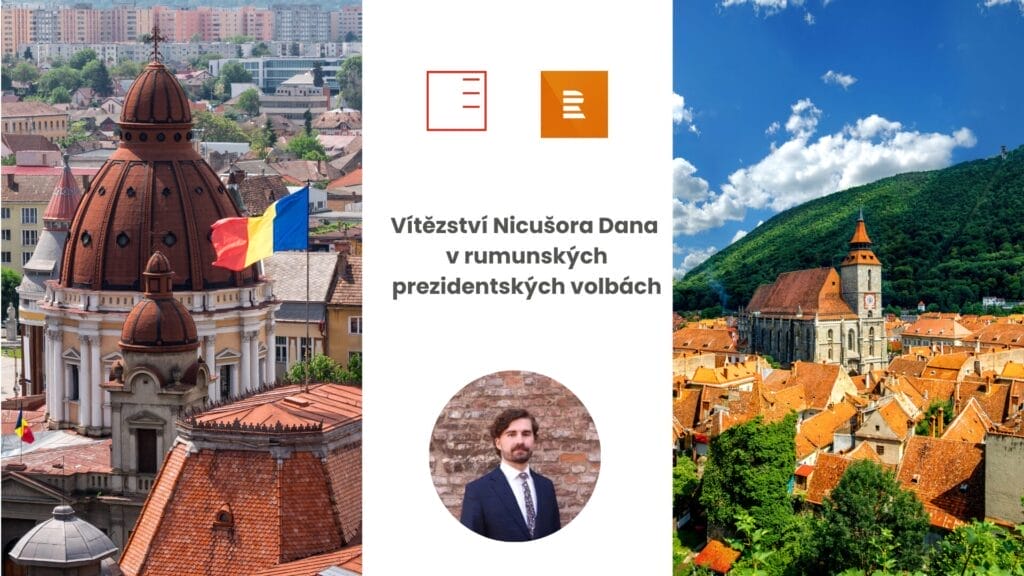
ČRo Plus | Vítězství Nicušora Dana v rumunských prezidentských volbách
Vítězství Nicušora Dana bylo jistým způsobem překvapení, protože se zdálo z náskoku v prvním kole, že mobilizace pro něj bude složitá, ale nakonec mobilizoval neuvěřitelné množství lidí, i těch, kteří zastávají úplně jiné politické názory. Klíčovým faktorem bylo to, že voliči hlasovali spíše proti Simionimu než kvůli tomu, že by je Dan tolik oslovil. Pro ČRo Plus komentoval zástupce ředitele Institutu EUROPEUM Viktor Daněk.
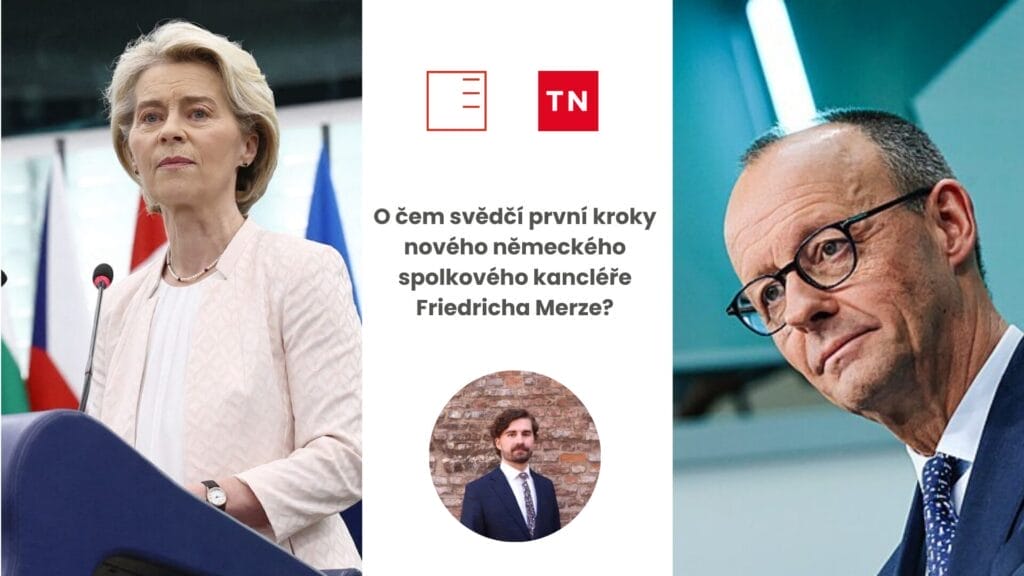
ČRo Plus | O čem svědčí první kroky nového německého spolkového kancléře Friedricha Merze?
Dne 9.5. zavítá nový německý kancléř Friedrich Merz do Bruselu a setká se s vrchními unijními představiteli. Pro ČRo Plus komentoval Viktor Daněk, zástupce ředitele Institutu EUROPEUM.
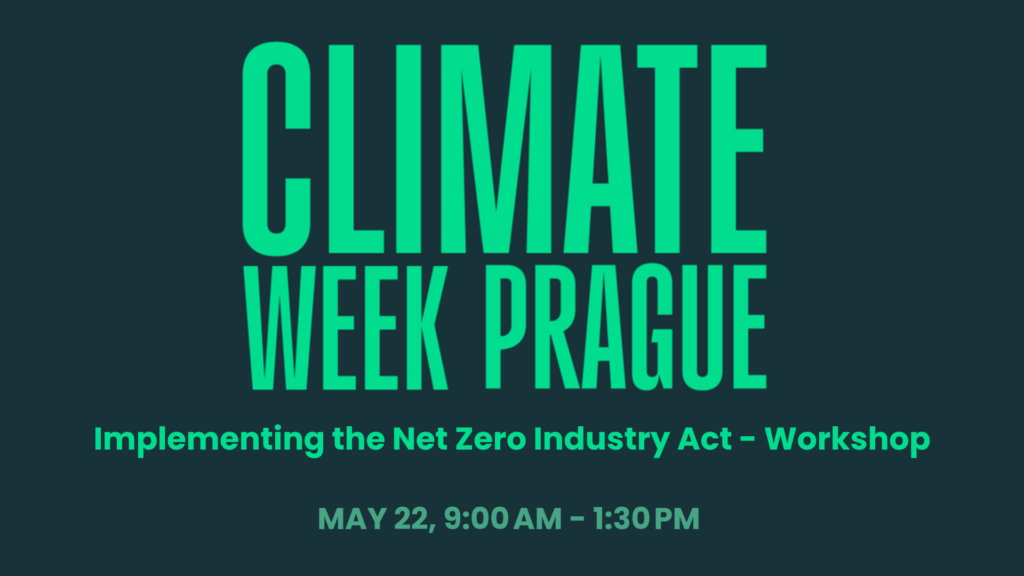
Climate Week Prague | Implementace nařízení o průmyslu pro nulové čisté emise
Tento workshop, pořádaný podnikatelským sdružením Change for the Better ve spolupráci s Europeum, představuje jedinečnou příležitost pro české podniky formulovat společné stanovisko k implementaci Nařízení o průmyslu pro nulové čisté emise (Net Zero Industry Act, NZIA) a diskutovat o jeho dopadech na český průmyslový sektor.
Setkání se zaměří na klíčové strategické otázky, jako je financování, regulace a konkurenceschopnost českého průmyslu v kontextu zelené transformace.
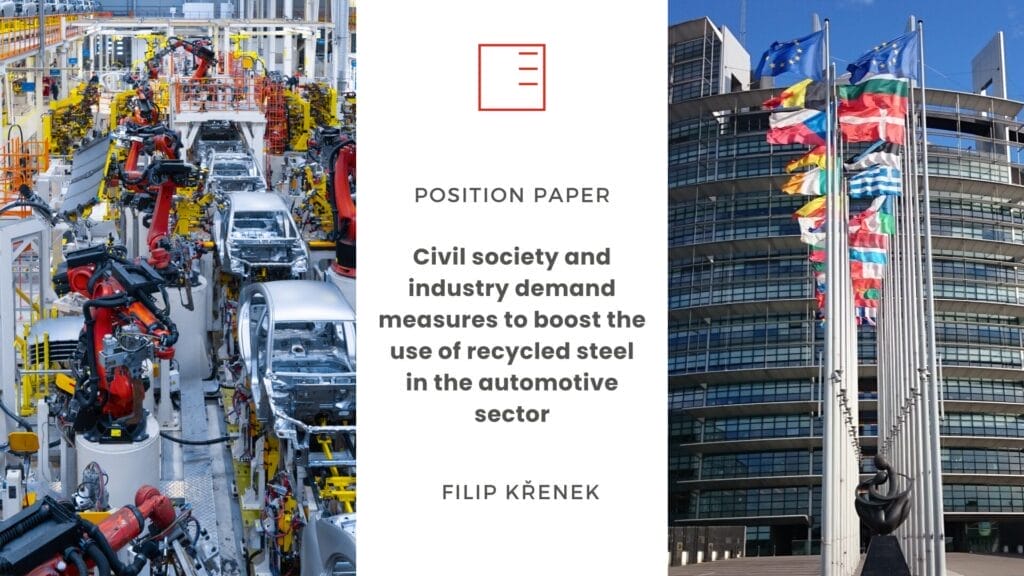
Stanovisko | Občanská společnost a průmysl požadují opatření na podporu využívání recyklované oceli v automobilovém průmyslu
Evropský automobilový průmysl čelí zásadní změně. V souvislosti s aktualizací evropské legislativy o cirkulárním hospodaření s vozidly apelují neziskové organizace, analytická centra a zástupci recyklačního odvětví na Evropský parlament a Radu, aby stanovili ambicióznější cíle pro využití recyklované oceli při výrobě aut.
Signatáři společného prohlášení požadují důraznější kroky k tomu, aby se recyklovaná ocel stala běžnou součástí automobilové výroby.
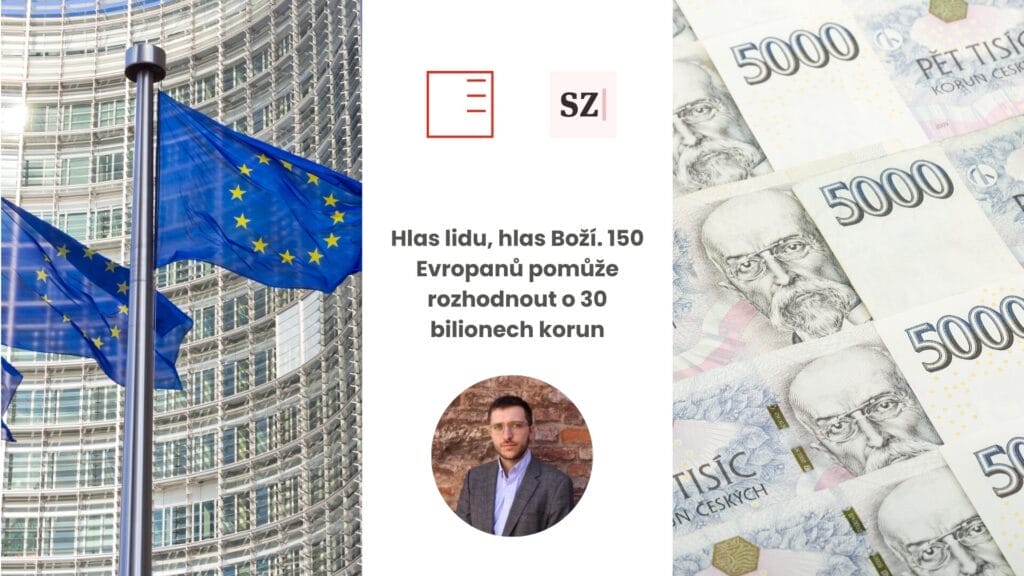
Seznam Zprávy | Hlas lidu, hlas Boží. 150 Evropanů pomůže rozhodnout o 30 bilionech korun
Evropská komise pozvala do Bruselu 150 náhodně vybraných lidí, kteří jí během tří víkendů radili, jak by měl vypadat rozpočet EU na příštích sedm let. Ten současný operuje s částkou 1,2 bilionu eur, tedy necelých 30 bilionů korun. Pro SZ Byznys vysvětluje ekonomický analytik Institutu pro evropskou politiku EUROPEUM Filip Křenek.
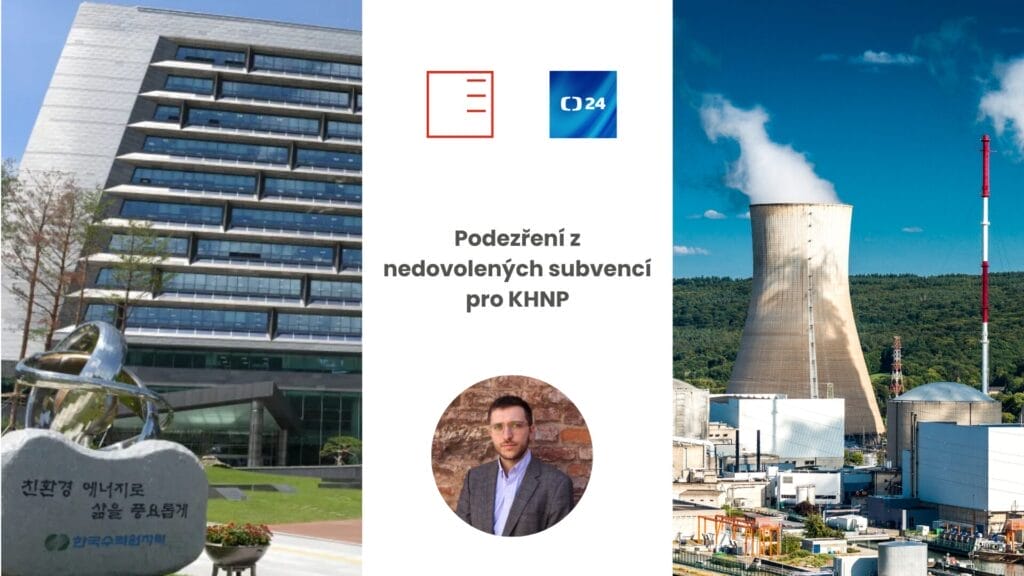
ČT24 | Podezření z nedovolených subvencí pro KHNP
Další kroky v kauze Dukovany komentoval pro Studio ČT24 analytik Institutu pro evropskou politiku EUROPEUM Filip Křenek.